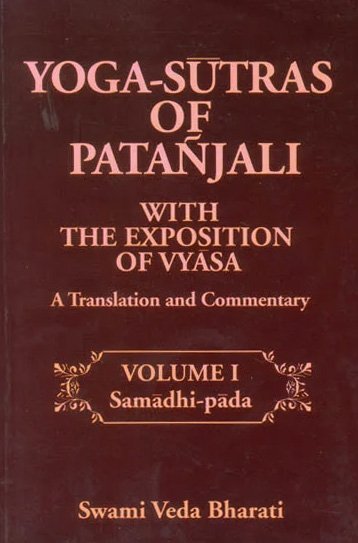Yoga-sutras (Ancient and Modern Interpretations)
by Makarand Gopal Newalkar | 2017 | 82,851 words | ISBN-13: 9780893890926
Yoga-sutras 4.30, English translation with modern and ancient interpretation. The Patanjali Yogasutras describe an ancient Indian tradition spanning over 5000 years old dealing with Yoga:—Meditating the mind on the Atma leading to the realization of self. This study interprets the Yogasutras in light of both ancient and modern commentaries (e.g., Vyasa and Osho) while supporting both Sankhya and Vedanta philosophies.
Sūtra 4.30
Sanskrit text, Unicode transliteration and English translation of sūtra 4.30:
ततः क्लेशकर्मनिवृत्तिः ॥ ४.३० ॥
tataḥ kleśakarmanivṛttiḥ || 4.30 ||
(30) From that afflictions and actions cease.
Ancient and Modern interpretation:
Desires function as barriers. The last desire is ‘desire to get libertated’. The last subtle desire is ‘desire to be desireless’. Osho has given beautiful example of one entering into porch and start staying there, without entering the actual palace. So, remain aware.
The cloud may blind you. But if you transcend the cloud, then–
[Read sūtra 4.30 above]
From that afflictions and actions cease.
Araṇya explains,[1] when through Dharmamegha samādhi, the yogī is freed from afflictions and consequent actions, he is called jīvanmukta. They do not perform new act, but only wait for disapperence of latent impressions. As per Sāṅkhyas philosophy, a jīvanmukta is one who has attained the highest stage of devotional practice.
Osho says,[2] if you do not transcend then there are chances that you may fall back in this world.
Footnotes and references:
[1]:
Araṇya, op.cit., p.399
[2]:
p.139
